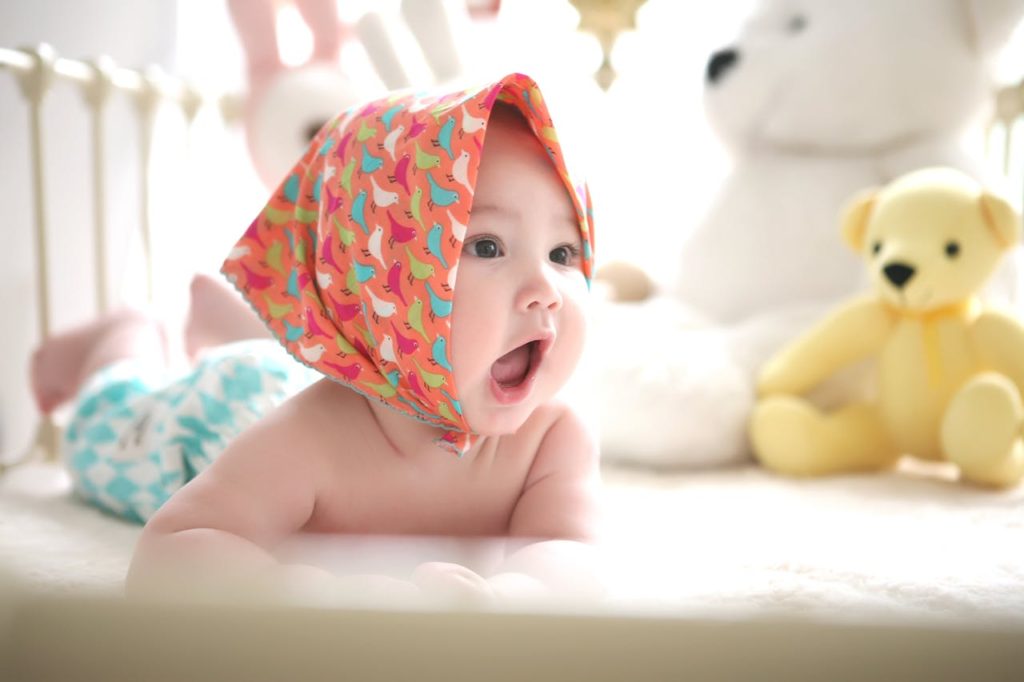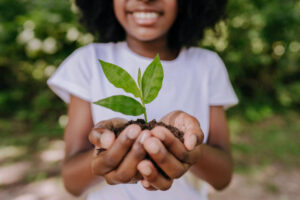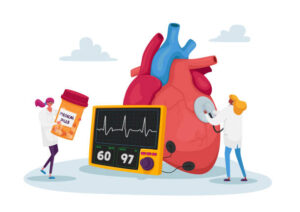Your choice of eco-friendly baby products plays a vital role in the development and overall health of your baby. Through these products, they can explore, touch, and understand the world around them.
The right baby products can ensure that your child with a healthy home, wardrobe, and bath time routine. They also provide your baby with ultimate comfort and save you some money.
Many parents believe that eco-friendly baby products are overpriced and difficult to obtain since they are made from futuristic materials. They couldn’t be more wrong.
Manufacturers use sustainable materials such as recycled wood, polyurethane rigid foams, and sheep’s wool to create a variety of baby products. Raw materials and derivatives of these materials are neither expensive nor scarce.
It is very easy to find sustainable baby products at your local toy store. In case you don’t have access to a physical store, you can buy such products online.
What are Eco-Friendly Baby Products?
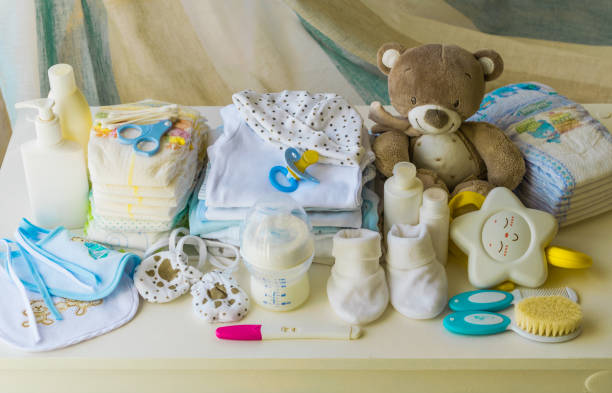
Sustainable baby products are to items designed with the environment in mind, crafted from sustainable materials, and produced through eco-conscious manufacturing processes.
These products aim to minimize the carbon footprint associated with conventional baby products, making them a suitable choice for environmentally aware parents.
The most eco-friendly baby care products are free from harsh chemicals like synthetic fragrances, parabens, sulfates, and phthalates. Furthermore, they cannot contain genetically modified organisms (GMOs).
The Dangers of Traditional Baby Products
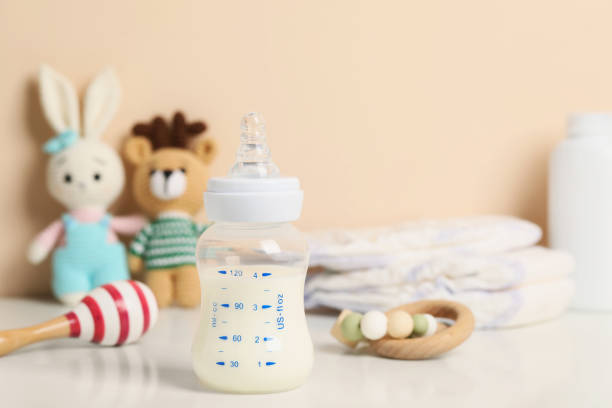
We all know the harm that antibiotics and hormones do to our children when they are used in meat and dairy products. In contrast, we also know that pesticides in our food have detrimental effects on our children’s health. Therefore, investing in synthetic commercial baby products for your precious one is a bad decision, so you should rethink your strategy.
To protect their children from the harmful effects of synthetic products on the market, most parents are willing to pay an extra amount – whatever it is. When buying baby products, it is best to invest in organic items to avoid such harmful effects.
The Difference Between Natural and Organic Baby Products
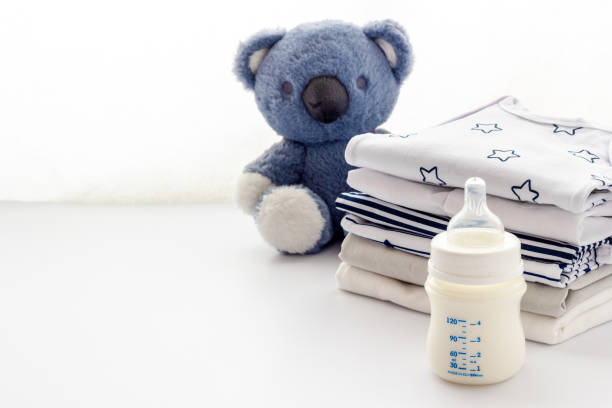
Although both terms concern natural ingredients, “natural” and “organic” do not mean the same thing. To make the right choice when it comes to baby skin and hair care, it’s important to know the difference between natural and organic.
In most cases, companies can label their products as “natural” despite the FDA (Food and Drug Administration) not regulating the term “natural” — except for color, synthetic substances, and flavors added to the product. On the other hand, organic labels are regulated by the USDA (United States Department of Agriculture).
USDA organic standards must be met for products to be certified. Chemicals, artificial fertilizers, or synthetic pesticides must not be used in the production of organic products.
The production of organic products must take place in a manner that promotes resource conservation, promotes ecological balance, maintains and improves soil and water quality, minimizes the use of synthetic materials, and preserves biodiversity.
The Benefits of Eco-Friendly Baby Products
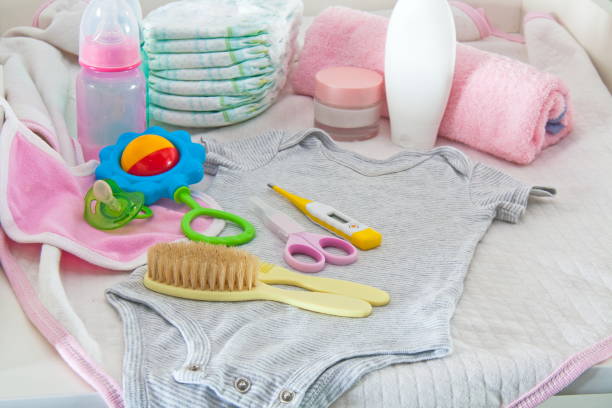
1. Antibacterial and antifungal properties
Parents know it is difficult to disinfect all the surfaces their children touch or put in their mouths. There is no need to worry that bamboo and soy products harbor harmful bacteria because they are naturally antibacterial and antifungal. Almost everything from toys to blankets can be made from bamboo, which can replace both plastic and cotton.
2. Less exposure to harmful chemicals
Traditional baby products may contain a myriad of synthetic chemicals, some of which have been associated with adverse health effects. Sustainable baby products are crafted with a focus on minimizing or eliminating these harmful substances.
From organic cotton clothing to natural baby lotions, these products often undergo rigorous testing to ensure they are free from toxins like formaldehyde, lead, and endocrine disruptors. This reduction in chemical exposure contributes to the overall well-being of your baby, promoting a healthier start in life.
3. Environmentally friendly
Eco-friendly baby products are better for the environment, which is one of the most significant benefits of using them. A conventional cotton crop, for example, uses one of the most pesticides of any crop. The use of organic cotton contributes to a chemical-free environment and supports sustainable green initiatives.
Eco-friendly baby bedding can also be made from sustainable materials like bamboo. In addition to requiring less water and resources to produce, these materials are more environmentally friendly.
4. Reduced long-term costs
While some eco-friendly baby products may have a slightly higher initial cost, their long-term benefits often translate into cost savings. Products made from durable and high-quality materials tend to last longer, reducing the frequency of replacements.
Cloth diapers, for example, are a one-time investment that can save a significant amount of money compared to the continuous purchase of disposable diapers. The financial investment in eco-friendly products proves not only beneficial for your pocket but also for the environment by minimizing overall consumption.
We can only add to the sustainability of the earth by using products made from bamboo, hemp, or recyclable containers for skincare products. As a result, we are also able to reduce our financial burden. You can save up to 75% on cloth diapers by using them for three years.
5. Durable and comfortable
Comfort and durability are also characteristics of sustainable and organic materials. It is more comfortable to sleep on organic cotton than conventional cotton, for example. Baby bedding made from bamboo is also hypoallergenic and moisture-wicking, making it a good choice for keeping your baby cool and dry.
6. Minimize the use of plastics
Overuse of plastic is believed to be the main source of most of the waste on this planet. A plastic-made baby product can result in more plastic waste, which is hard to recycle. It is safe for babies and the environment to use eco-friendly baby products.
The decomposition of plastic takes about 1,000 years. Plastic will soon fill our mother earth if we continue to use it this way. Increasing the use of environmentally friendly products is the only way to prevent this. We recommend that you buy your child eco-friendly baby products. The decisions he/she makes today will benefit him/her in the future as well.
7. Sustainability benefits
As a result of our throwaway culture, our planet may suffer negative consequences. It is still possible to build a green world by switching to sustainable and sustainable baby products and avoiding products that do not benefit the environment. To ensure the safety and sustainability of baby products and toys, parents are always recommended to purchase eco-friendly items.
8. Suitable for babies with sensitive skin
Compared to adult skin, baby skin is thinner and more sensitive, so organic products are recommended. As a rule, organic and sustainable baby products cause fewer rashes, irritations, or other skin conditions than nonorganic products. As organic products are generally more gentle on babies’ skin, many dermatologists recommend using them when they have skin issues such as eczema and psoriasis.
You can protect your baby from long-term exposure to chemicals by choosing organic and eco-friendly baby products. Furthermore, sensitive skin adults may also benefit from such products.
9. Hypoallergenic
Due to the lack of synthetic allergens, many eco-friendly baby products are hypoallergenic, which means they can cause fewer allergies than products containing such allergens. You may wish to consider organic baby products if your infant has sensitive skin or suffers from allergies.
Note, however, that natural ingredients can cause allergies in babies! If you decide to use eco-friendly baby products regularly on your baby, always do a patch test first.
10. Enhances indoor air quality
Many conventional baby products release volatile organic compounds (VOCs) into the indoor air, contributing to indoor air pollution. Earth-friendly baby products, particularly those with certifications like Greenguard, prioritize low-emission materials, reducing the release of harmful VOCs.
This emphasis on air quality is especially crucial in the baby’s environment, where developing respiratory systems can be more susceptible to pollutants. Choosing eco-friendly options contributes to a healthier indoor environment for your baby to thrive.
11. Good manufacturing practices
Many sustainable baby product brands are committed to ethical manufacturing practices. This includes fair wages, safe working conditions, and adherence to labor standards. By supporting these brands, you contribute to the promotion of social responsibility within the manufacturing industry.
The well-being of those involved in the production process becomes an integral part of your purchase decision, fostering a sense of global responsibility and compassion.
12. Educate about green living
Choosing eco-friendly baby products provides an opportunity for early education on green living. As you make conscious choices for your child, you model environmentally responsible behavior.
This educational aspect extends to your child as they grow, instilling values of respect for nature, conservation, and responsible consumption. The choices made today become foundational lessons for the next generation, creating a positive ripple effect in fostering a more environmentally conscious society.
How to Make a Switch to Eco-Friendly Baby Products?
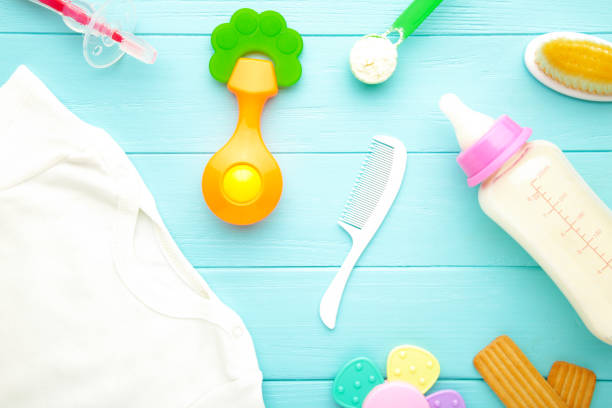
- Research and educate yourself: Familiarize yourself with eco-friendly baby products and understand the principles of sustainability.
- Start gradually: Make the transition gradually to minimize waste and allow you and your kid to adapt to the new eco-friendly baby products.
- Visit local eco-friendly markets: Explore local markets or eco-friendly fairs to discover unique and sustainable baby products.
- Join online communities: Engage with online communities and forums dedicated to eco-friendly parenting to gather tips and recommendations.
- Seek recommendations: Ask friends and family who have experience with eco-friendly baby products for their recommendations.
- Consider second-hand options: Explore second-hand markets or exchange programs for sustainable baby products to reduce your environmental impact further.
- Look for certifications: Choose products with recognized eco-friendly certifications, such as USDA Organic or Global Organic Textile Standard (GOTS).
- Understand ingredient lists: Familiarize yourself with common eco-friendly materials and ingredients, ensuring they align with your values.
- Evaluate packaging: Assess the packaging of products for eco-friendly materials and consider brands that prioritize minimal and recyclable packaging.
- Share your journey: Share your experiences with others on social media or within your community to inspire and encourage the adoption of eco-friendly baby products.
Eco-Friendly Baby Products to Try
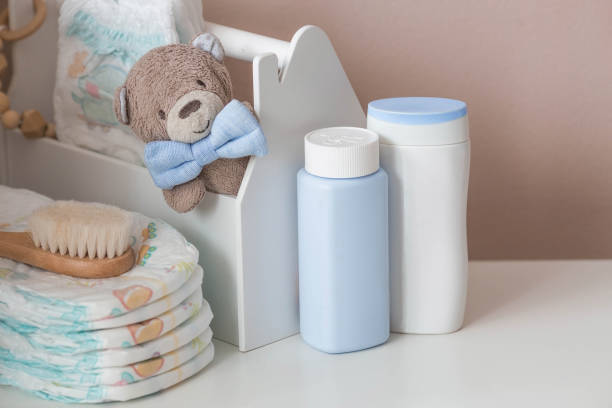
The following products are organic alternatives to those you purchase for your baby:
1. Baby formula
A bulk of the non-organic food on the market contains pesticides and hormones that can be avoided by buying organic food. Your toddler’s health and well-being will be safeguarded if you choose organic baby products when they start eating solid foods.
Researchers have discovered that today’s food industry uses hazardous dyes, chemicals, and preservatives. You may want to consider spending a bit extra on organic foods if you want to protect your baby from these harmful effects. By avoiding synthetic food products, you will improve your baby’s health and well-being.
2. Skincare products
For the delicate skin of your toddler, you will need baby shampoo, toothpaste, soap, and creams. Chemicals and harmful ingredients must not be present in any of these products. When compared to adult skin, the skin of your baby is very delicate.
As a result, it is less tolerant of harmful chemicals than adult skin. Your baby should therefore use organic skincare products. In the long run, it will benefit the skin’s health and radiance. Your baby’s bloodstream absorbs everything you place on his skin.
To prevent harming your toddler, you should not put anything harmful on his or her skin. Baby skincare products made from organic ingredients are available on the market. The price difference between organic and non-organic shampoo is only about $3. Thus, why would you harm your baby’s skin just to save $3? Organic baby products are always the best choice for your precious child.
3. Bedding and clothing
It isn’t necessary to spend hundreds of dollars on organic bedding and clothing for your toddler. 100% cotton materials are an excellent choice. In addition to protecting your infant’s skin, it helps him or her stay comfortable for longer periods.
Conclusion
The choices you make affect others. Your choice of eco-friendly baby products inspires friends and family members to do the same, which creates a ripple effect.
It’s smart to choose sustainable baby products to protect the environment and the well-being of your child. You can make a difference and give your child a brighter future in a small but impactful way.
Your parenting journey is an opportunity to foster an eco-conscious generation. Let sustainability be a guiding principle.
FAQs on Eco-Friendly Baby Products
Are eco-friendly baby products more expensive?
While some sustainable products may have a higher initial cost, the long-term benefits often outweigh the upfront expense.
Do eco-friendly baby products work as effectively as traditional ones?
Yes, eco-friendly baby products are formulated to be as effective as traditional ones, with the added benefit of being gentler on your baby’s skin and the environment.
Can I find sustainable baby products in regular stores?
Yes, many mainstream stores now carry a selection of sustainable baby products. Additionally, specialty stores and online platforms offer a wide variety.
How do I know if a product is genuinely eco-friendly?
Look for reputable certifications, read product labels, and research the brand’s commitment to sustainability. Customer reviews can also provide valuable insights.
Are cloth diapers better than disposable ones for the environment?
Generally, yes. While cloth diapers have a higher initial environmental impact, their long-term use reduces overall waste compared to disposable diapers.
Can I use sustainable baby products if my baby has allergies?
Many sustainable baby products are formulated with hypoallergenic ingredients, making them suitable for babies with allergies. Always check product labels for specific information.
Do eco-friendly baby products come in different styles and designs?
Yes, the market for eco-friendly baby products has expanded, offering a wide range of styles and designs to suit different preferences.
Are there eco-friendly options for baby formula?
Yes, there are eco-friendly options for baby formula, including those packaged in recyclable materials and sourced from sustainable practices.
Can I make sustainable baby products at home?
Some parents choose to make their baby products using natural ingredients. However, it’s essential to ensure safety and proper formulation.
Are there eco-friendly options for baby toys?
Yes, many eco-friendly baby toy options are made from sustainable materials such as wood, organic cotton, and recycled plastic.
Can I find eco-friendly baby products for different budgets?
Yes, there is a range of eco-friendly baby products available at various price points, making sustainability accessible for different budgets.
Do eco-friendly baby products have a shorter shelf life?
Not necessarily. Many eco-friendly products are designed for durability and have a shelf life comparable to traditional alternatives.

